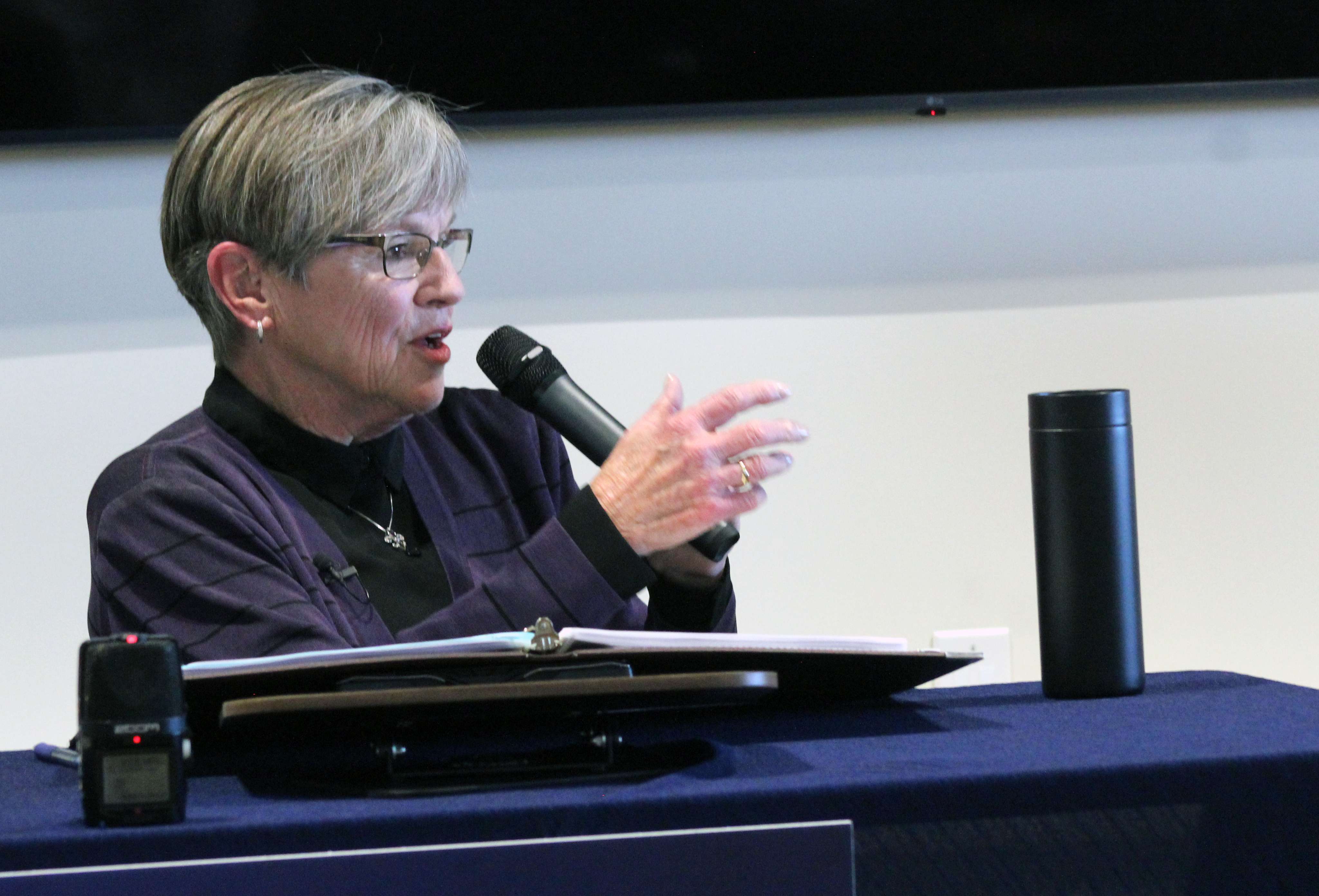
By CRISTINA JANNEY
Hays Post
Governor Laura Kelly said she is concerned the state will face a $700 million deficit by fiscal year 2029 if the current trend in the Kansas budget continues.
Kelly is on the Kansas Budget tour, which made a stop in Hays on Wednesday. Kelly, who was joined by Adam Proffitt, budget director and Secretary of Administration, gave opening remarks on the budget, followed by a town hall.
The governor said she thought putting together the budget was the most important thing that she did.
"I don't see the budget as mine," Kelly said. "I really do see it as the people's. When I am working with Adam and his people, I'm thinking about what Kansans need and how we make that happen through the budget process."
She said she would use input from the budget community meetings to craft the FY27 budget.
She said a good budget attracts strong business investment and allows the state to respond to people's needs when the unexpected happens, including recessions, pandemics or natural disasters.
Kelly recalled what she called the "Brownback tax experiment."
Gov. Sam Brownback, backed by the Legislature, cut taxes, which resulted in budget shortfalls. Revenue fell by $1 billion. Programs and services had to be cut, and the state's credit score was downgraded, Kelly said.
Funds were diverted from the Kansas Department of Transportation, the state pension fund, and schools were underfunded, she said.
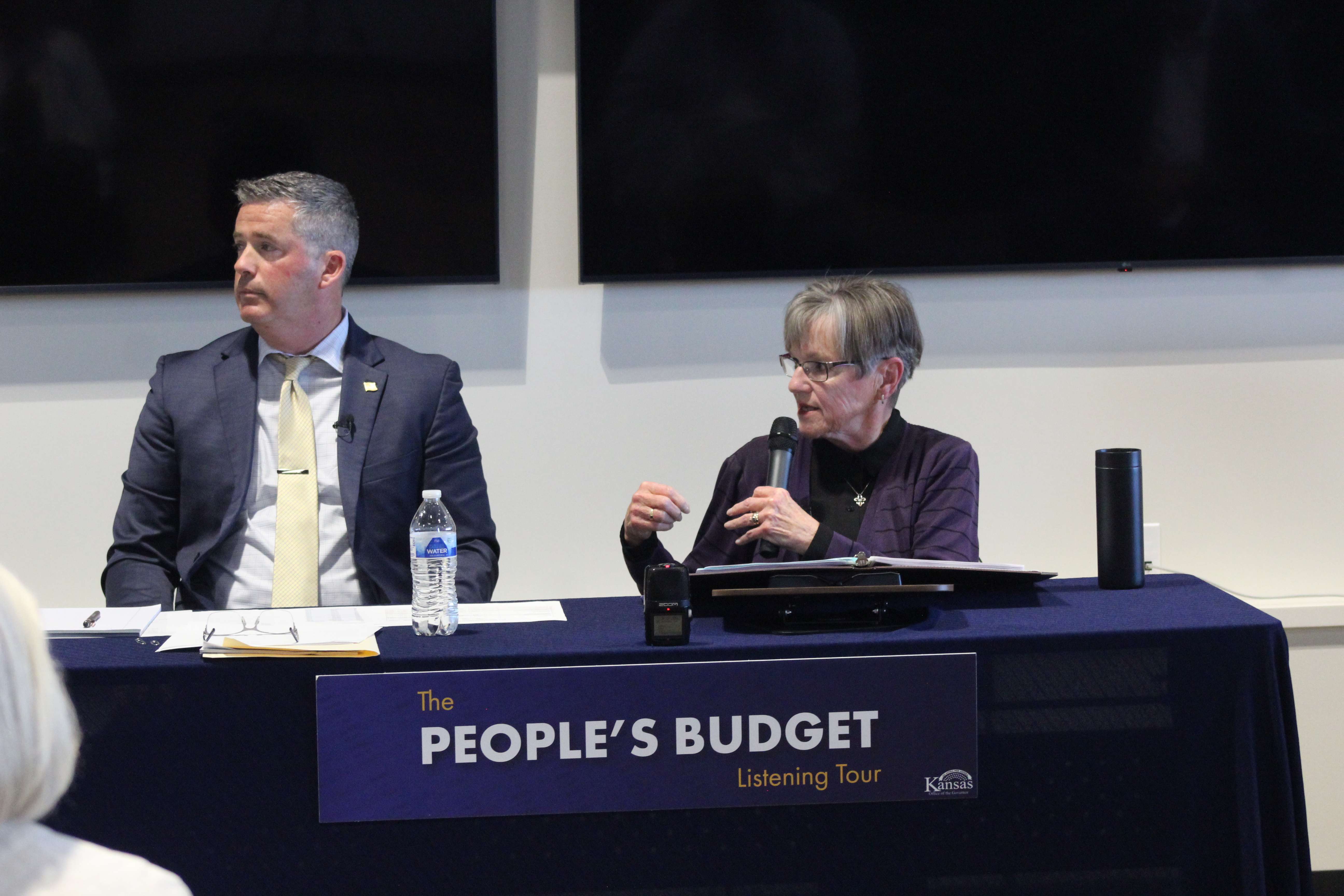
Proffitt said the state transferred money, delayed payments and incurred debt so it would not end its fiscal years FY15 through FY18 in the negative. Payments to schools had to be made late to address state cash flow issues, forcing schools to rely on reserves.
"So as the governor came in and started to get things stabilized, she looked at me and my team and gave us a charge, 'Go find every budget maneuver and accounting gimmick and undo every single one of them," Proffitt said.
"I'm happy to report to you, as of today, we have undone every single budget maneuver and accounting gimmick."
Under Gov. Kelly, Kansas has had end-of-year surpluses and established a rainy-day fund of about $2 billion.
"Next time we have a recession, we won't have to do what we did the last time we had a recession," Kelly said.
Under Kelly's administration, taxes have been cut by $2 billion, including a tax elimination of the sales tax on food, she said.
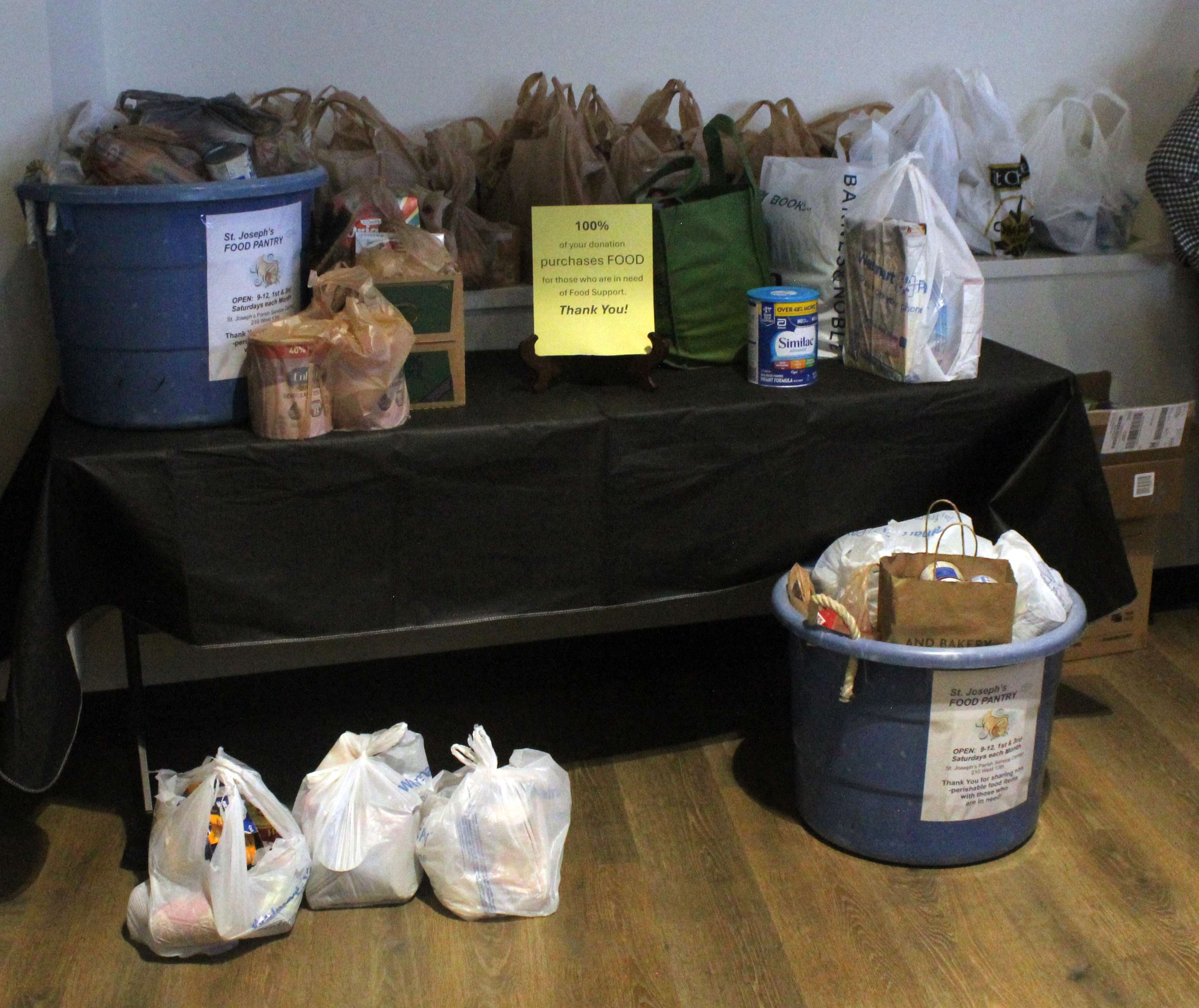
Changes in the budget process
Historically, the governor had gathered budget recommendations from departments and proposed a budget to the Legislature, which made changes in the budget and then sent the budget back to the governor for his or her signature.
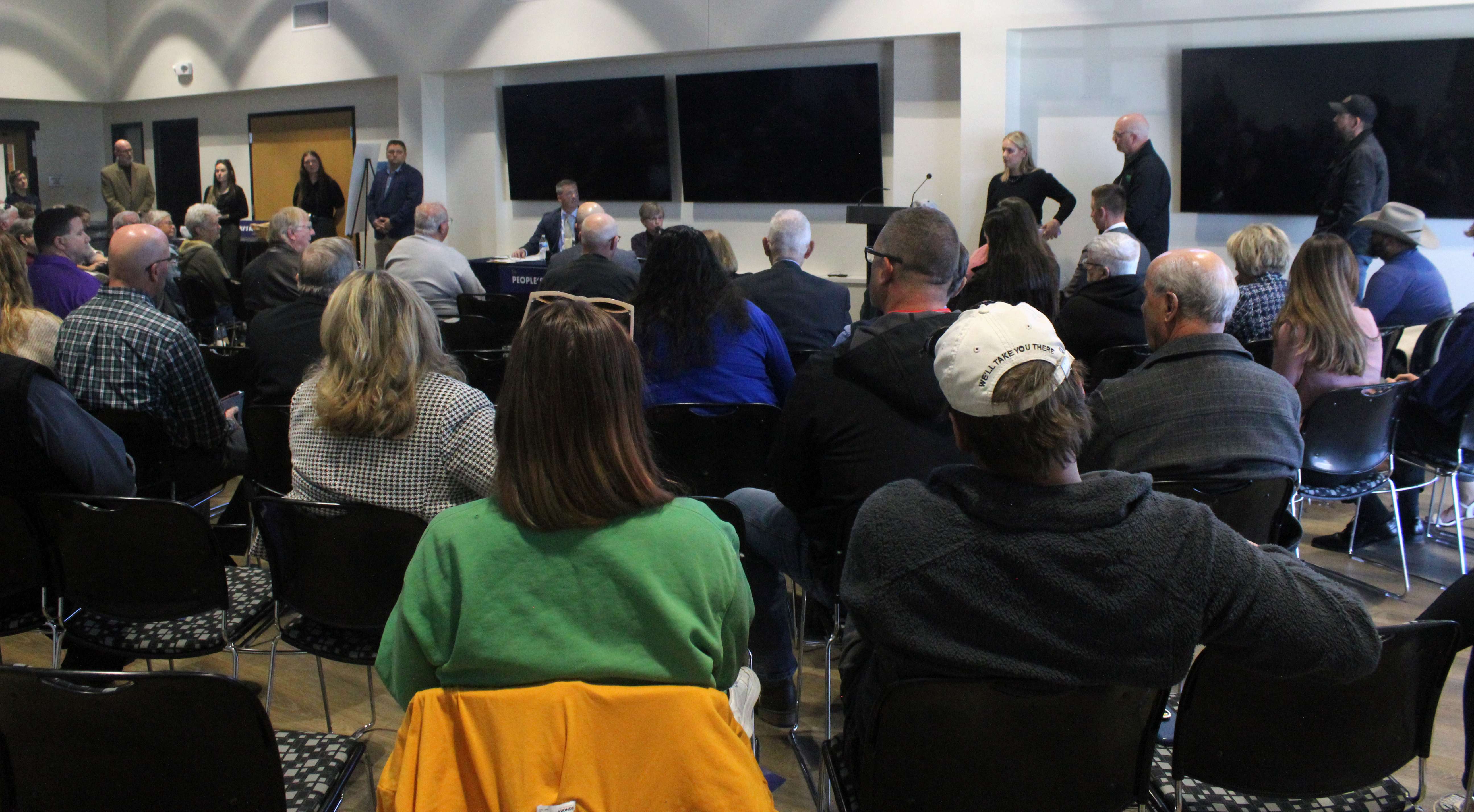
For the current fiscal year, the Legislature started with its own budget, Proffitt said. The Legislature used last year's budget as a starting point.
The governor's recommendations were not addressed until midway through the session, he said.
He called it a woefully inefficient process.
He expressed three concerns. He said the first is a structural imbalance with ongoing expenditures exceeding revenues. The budget presented to the governor in the last two budget cycles has included debt.
From a constitutional perspective, Proffitt expressed concern about not including the governor's input in the budget process, and that could be a governor of either party moving forward.
"With all that is happening at the national level, with the tariffs and the cuts to Medicaid and the doubling of your health insurance premiums under the ACA, we've got to continue to exercise fiscal restraint," Kelly said.
Kelly said in her first State of the State speech seven years ago she talked about the state being at a turning point.
"We're at a turning point again," she said. "So I ask you, 'What do you value? What do you want to see reflected in our budget?'"
Kelly then opened the floor to questions and comments from the 80 attendees at the town hall. Her staff also accepted comment cards.
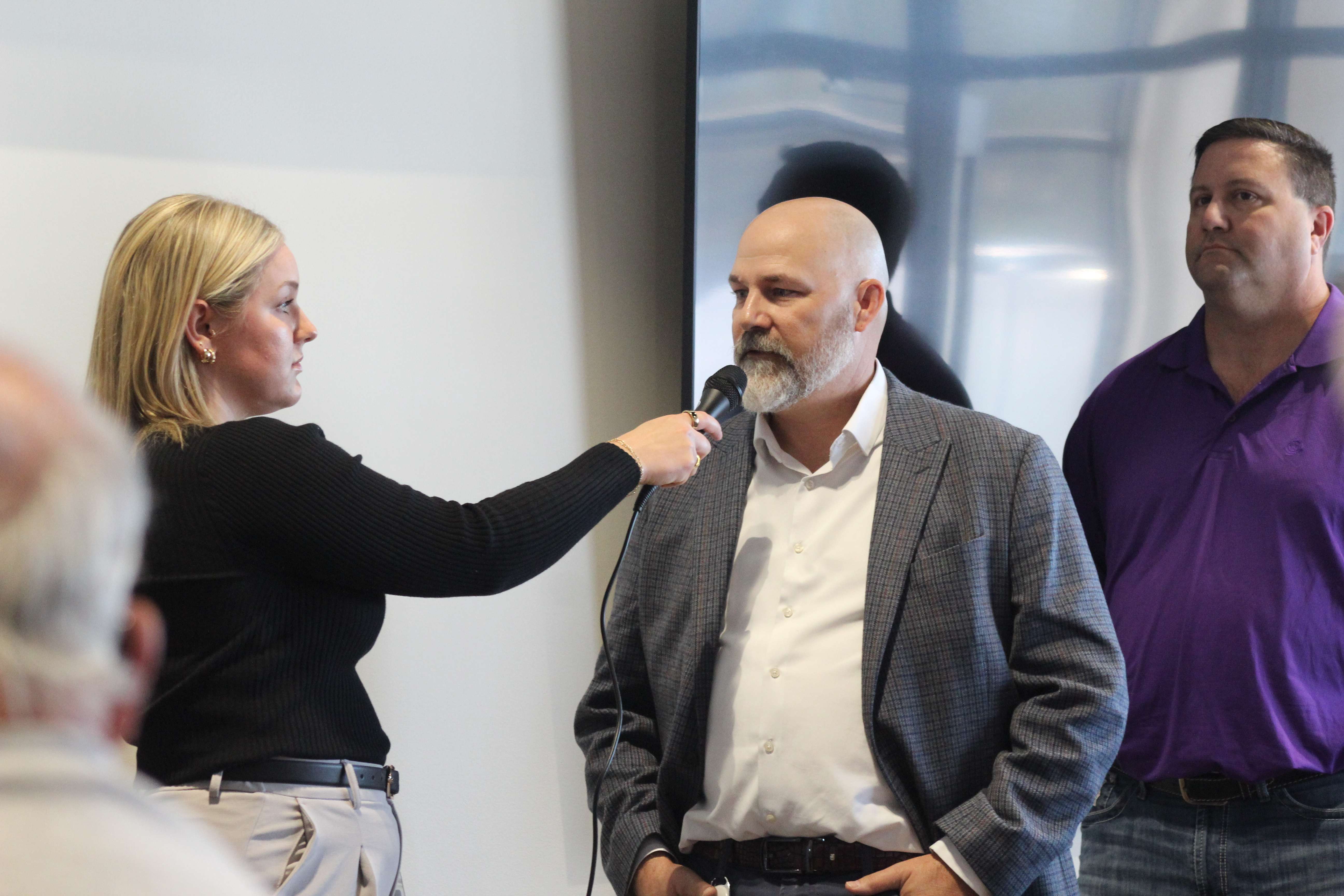
Mental health
Craig Poe, High Plains Mental Health Center executive director, expressed a need for funding for mental health care for residents who are uninsured or underinsured.
High Plains is building a new Crisis Intervention Center; however, he said care at the facility will not be covered for many who have private insurance.
Kelly said she will continue to work with the insurance department to ensure equal coverage for mental and physical health care.
She also discussed her longstanding support for Medicaid expansion and said she is working with the Kansas congressional delegation to reverse federal Medicaid cuts scheduled for 2026.
Water
Kelly said she supports a decade-long plan to address water resources and believes it should be funded for the same period, as is Kansas Department of Transportation's infrastructure program.
She hailed Hays for its water conservation efforts.
Nursing care
A man from the audience said he is interested in developing new senior care facilities in rural communities. He said he is interested in what assistance the state could provide for that development.
He said finding full financing to build a $20-million to $30-million facility is very difficult. He expressed interest in a state loan system that could help with seed money to get these projects off the ground.
Proffitt said he thought the framework may already be in place, and he could help develop a list of resources.
Rural economic development
Roger Hrabe, Rooks County Economic Development director, expressed a need to fund programs that support economic growth in rural communities.
He said he supports the Rural Opportunity Zone program, which has brought families to Rooks County. The county continues to dedicate funds to the program.
However, the program comes up for renewal this year.
The program allows people who move into Kansas counties to receive reimbursement for tuition debt. Hrabe said the program was targeted at counties that had lost population, but was then expanded, resulting in some loss of effectiveness.
Kelly said she thinks incentives need to be tailored to communities' needs.
She said funds have been made available to rural communities through the Kansas Arts Commission, the Department of Tourism and the Main Street Program.
Special education funding
Matt Smith, superintendent of Trego County USD 208, said he appreciated the last increase in special education funding. However, the district still has to transfer $300,000 from its general fund to special education due to unmet obligations by the federal and state governments.
"Those are dollars that otherwise could go to teacher salaries, classroom materials or student programs," Smith said.
Kelly said she had a plan to increase special education funding over five years to meet the state's statutory requirements. The Legislature did not approve that plan.
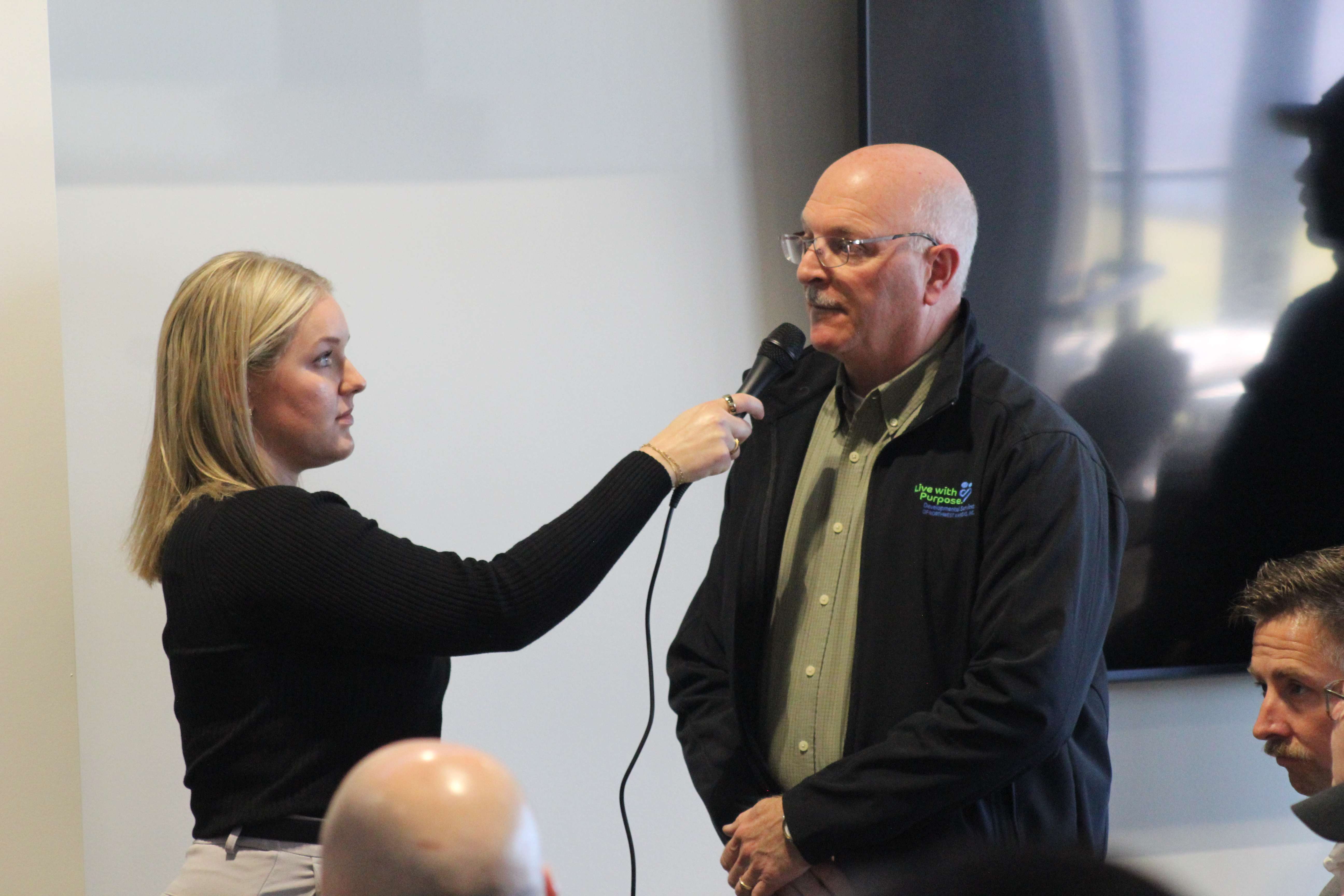
Services for the disabled
Jerry Michaud, DSNWK executive director, expressed concerns about compensation for workers caring for individuals who have developmental disabilities.
The rates are established through the legislative process. Some progress is being made, but the base wage for direct workers is only $14 per hour, he said.
He said these low wages have resulted in a "workforce crisis."
He said the public transportation system needs more state support.
Kelly said the state is working to provide more community support waivers so people can receive support with less staff intensity.
She said more people could be served if CMS approves the plan; however, that does not solve the workforce problem. She said she thought the Legislature will attempt to address the workforce issue.
Property taxes
David Vilaysing, Hays resident and city commission candidate, asked the governor what could be done to address rising property taxes.
The state levies 20 mills that go directly to schools, and the Legislature recently eliminated another 1.5 mills.
Kelly said the majority of property taxes are levied at the local level.
She said the Legislature could take action to cap property taxes, but she suggested Vilaysing take issues related to local property taxes to the elected officials of the local governing bodies that levy them.
Vilaysing said he thought the Legislature needs to institute a cap.
Former state Sen. Janis Lee said she thought ad valorem funding for counties should be reinstated to help offset property taxes. Rural counties can't rely on sales tax as a revenue source because they may have very little retail activity.
Kelly said she didn't think the state would restore the local ad valorem fund, but she thought there might be another way to address the needs of rural communities facing high property tax burdens.






